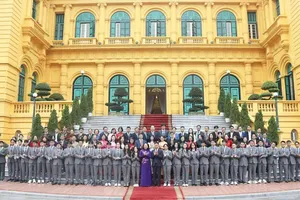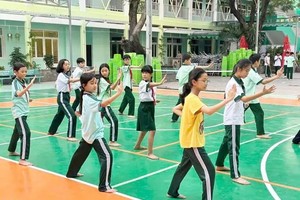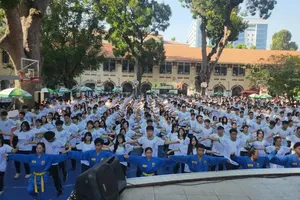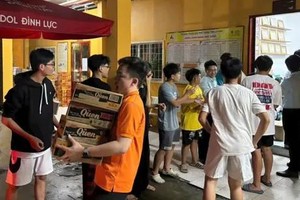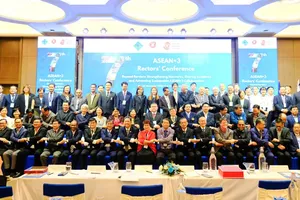Spain mourned on Friday the nine people killed after a 5.1-magnitude earthquake struck the historic southern city of Lorca, forcing thousands to flee their homes.
An open-air funeral mass was to be held in the city Friday morning, after army and emergency workers pitched tents and handed out food to thousands of evacuees Thursday following the country's deadliest quake in more than 50 years.
Prime Minister Jose Luis Rodriguez Zapatero, Crown Prince Felipe and his wife Letizia were to attend the ceremony.
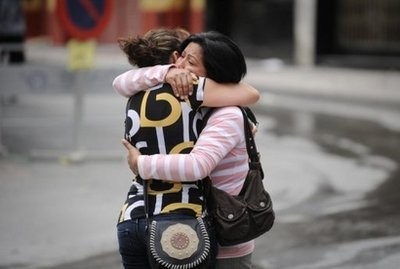
Nine people, including a child, perished after the quake rocked the city on Wednesday, the regional government of Murcia said.
The earthquake struck at 6:47 pm (1647 GMT) Wednesday at a depth of just 10 kilometres (six miles), coming nearly two hours after a smaller 4.4-magnitude quake.
Flattening buildings, ripping open walls and sending chunks of masonry flying into the streets, the tremor injured another 130 people, regional emergency services chief Luis Gestoso said.
The Red Cross said the quake forced some 15,000 of the city's 93,000 inhabitants from their homes.
Bulldozers cleared streets filled with stones, bricks, cornices, collapsed terraces and crumpled cars.
Some 20,000 buildings including many from the 16th and 17th centuries were reported damaged in Lorca, which traces its history back more than 2,000 years. Mayor Francisco Jodar said 80 percent of the city's buildings suffered some damage.
The clocktower of the 17th century San Diego Church tumbled and shattered in the street, narrowly missing a television reporter as he delivered a report on Spanish public broadcaster TVE. Its bronze bell lay in the rubble.
"Almost no one slept in their homes last night," the mayor said.
In the main marketplace, hundreds of people including children in pushchairs waited in the hot sun Thursday for food packages containing powdered re-hydration drinks, jam, cereal bars and water.
The Red Cross distributed 10,500 blankets, food, water and 2,000 foldup beds.
As thousands lined up for shelter, Zapatero said 370 army tents had been sent to the area.
Interior Minister Alfredo Perez Rubalcaba added that authorities could provide 3,500 places for the night in four tent camps. "If necessary, we can add another 1,500 places" to this total, he said.
The prime minister sent his condolences to the relatives of those killed and said the government was acting with maximum speed to confront "this catastrophe".
The government have sent in 800 personnel, half of them military emergency units and troops and the rest police, to help shelter the many homeless, Zapatero said.
The military emergency units have 140 vehicles to help clear the debris, he said.
Emergency workers are checking building by building to decide which can be repaired and which will have to be demolished, the premier said. "We will spare no effort for the reconstruction," he vowed.
Spain's seismological authorities predicted smaller aftershocks in the next month in the region, which lies on a geological fault line.
The president of Spain's College of Geologists, Luis Suarez, said the quake released energy equal to 200 tonnes of TNT and he expected the intensity of aftershocks to diminish.
Suarez said in a statement that a quake of this scale was not strong enough to bring buildings to the ground, and the scale of the damage must have been due to pre-existing structural problems.
The area's sandy soil also made the impact worse, he said.
"We know we live near a fault line but we never thought this would happen to us," said Pepe Tomas, 56, a nurse at a local clinic who has lived his whole life in the city.
Tomas said he had helped treat hundreds of people "mostly for anxiety".
The Socialist Party's Zapatero and his conservative Popular Party opponent Mariano Rajoy agreed to suspend campaigning for regional elections May 22 because of the disaster.
It was the deadliest earthquake in Spain since April 19, 1956 when a tremor wrecked buildings and killed 11 people in Albolote, a town in the southern Spanish province of Granada.


